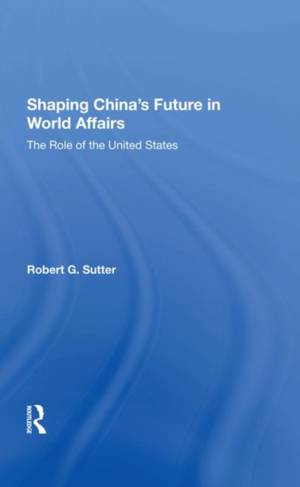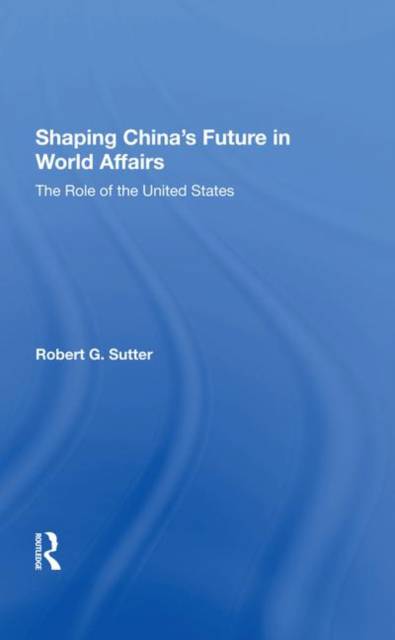
- Afhalen na 1 uur in een winkel met voorraad
- Gratis thuislevering in België vanaf € 30
- Ruim aanbod met 7 miljoen producten
- Afhalen na 1 uur in een winkel met voorraad
- Gratis thuislevering in België vanaf € 30
- Ruim aanbod met 7 miljoen producten
Zoeken
Shaping China's Future in World Affairs
The Role of the United States
Robert G Sutter
Hardcover | Engels
€ 117,95
+ 235 punten
Omschrijving
This book considers Chinese foreign policy and China's future role in world affairs in the context of the country's recent past. Robert Sutter shows that although it appears to be in U.S. interests for post-Mao leaders to continue moving toward international norms, a post-Deng leadership backed by growing economic and military power and reflecting profound changes in China's economy and society could move in markedly different directions. Most foreign powers appear willing to accommodate China, avoiding actions that could prompt a sharp shift in Chinese foreign policy, but Sutter argues that current U.S. policy intrudes on so many issues that are particularly sensitive for Beijing and for China's future that it represents perhaps the most critical variable determining how China will position itself in world affairs. Concluding that there is no guarantee the United States will use this influence wisely, Sutter examines the uncertainty and unpredictability of U.S. foreign policy in the post-Cold War environment that work against the creation of an effective U.S. policy toward China.
Specificaties
Betrokkenen
- Auteur(s):
- Uitgeverij:
Inhoud
- Aantal bladzijden:
- 200
- Taal:
- Engels
Eigenschappen
- Productcode (EAN):
- 9780367287184
- Verschijningsdatum:
- 7/05/2019
- Uitvoering:
- Hardcover
- Formaat:
- Genaaid
- Afmetingen:
- 150 mm x 236 mm
- Gewicht:
- 430 g

Alleen bij Standaard Boekhandel
+ 235 punten op je klantenkaart van Standaard Boekhandel
Beoordelingen
We publiceren alleen reviews die voldoen aan de voorwaarden voor reviews. Bekijk onze voorwaarden voor reviews.











